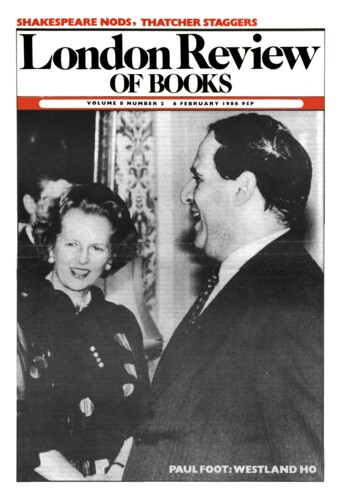Mulberrying
Andrew Gurr, 6 February 1986
Like relics of the True Cross, there are said to be enough splinters to make an orchard from the mulberry tree planted by Shakespeare in his garden at New Place. The Shakespeare canon has excited nearly as much passion for tangible facts, however marginal to the true faith, as Holy Writ. Bits of venerated mulberry scattered around the world of believers are a salutary reminder that our passion for tangibility evokes more than just that irritable reaching after fact and reason that Keats declared to be the antithesis of Shakespeare. In the Shakespeare canon at present, fact seems to be even more of a problem than interpretation. With such an intensely scrutinised canon, the less tangible and mulberry-like the facts, the more susceptible they are to the reshaping and rewriting of interpretation, and vice versa. The value of the facts of the Shakespeare canon lies in their interpretability.

